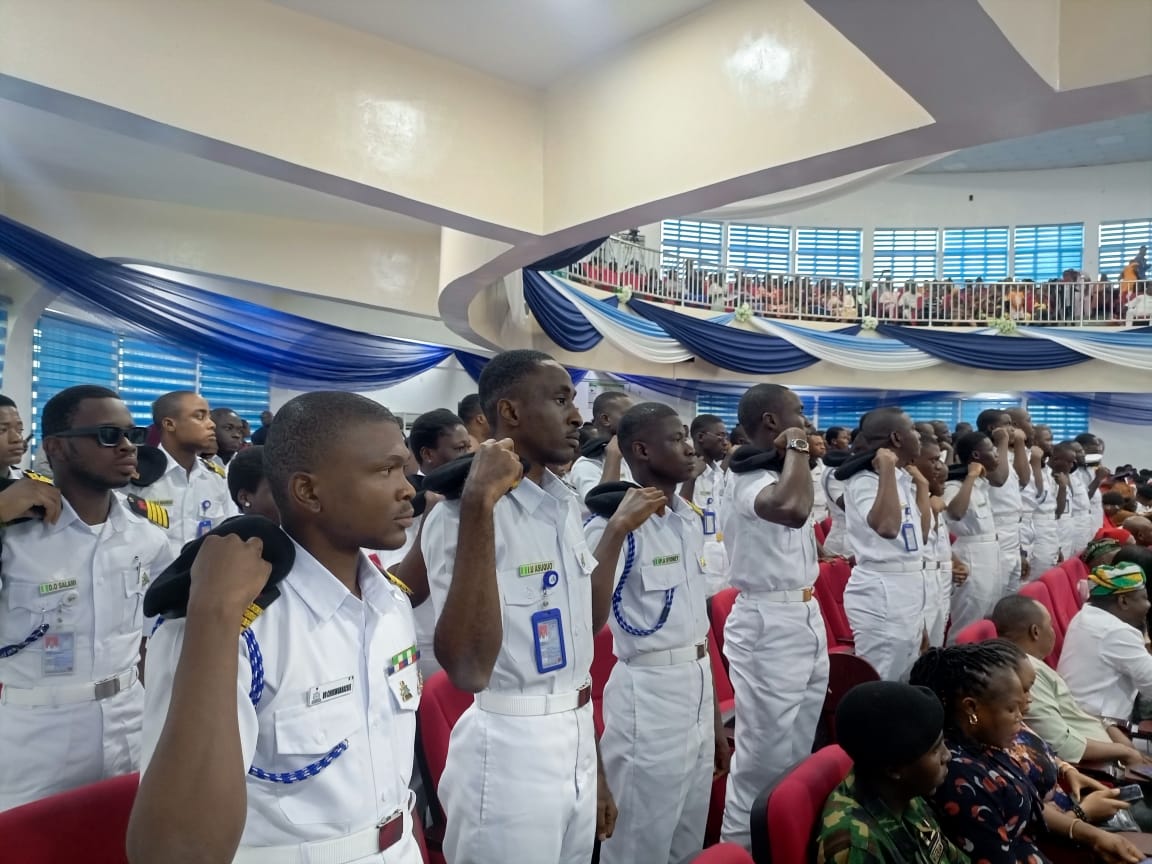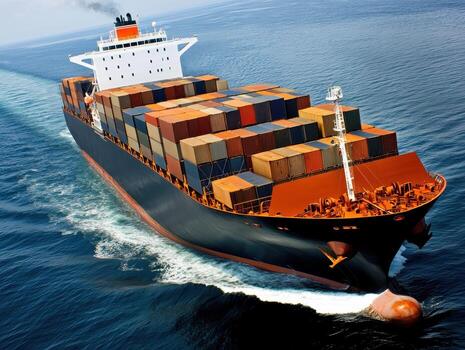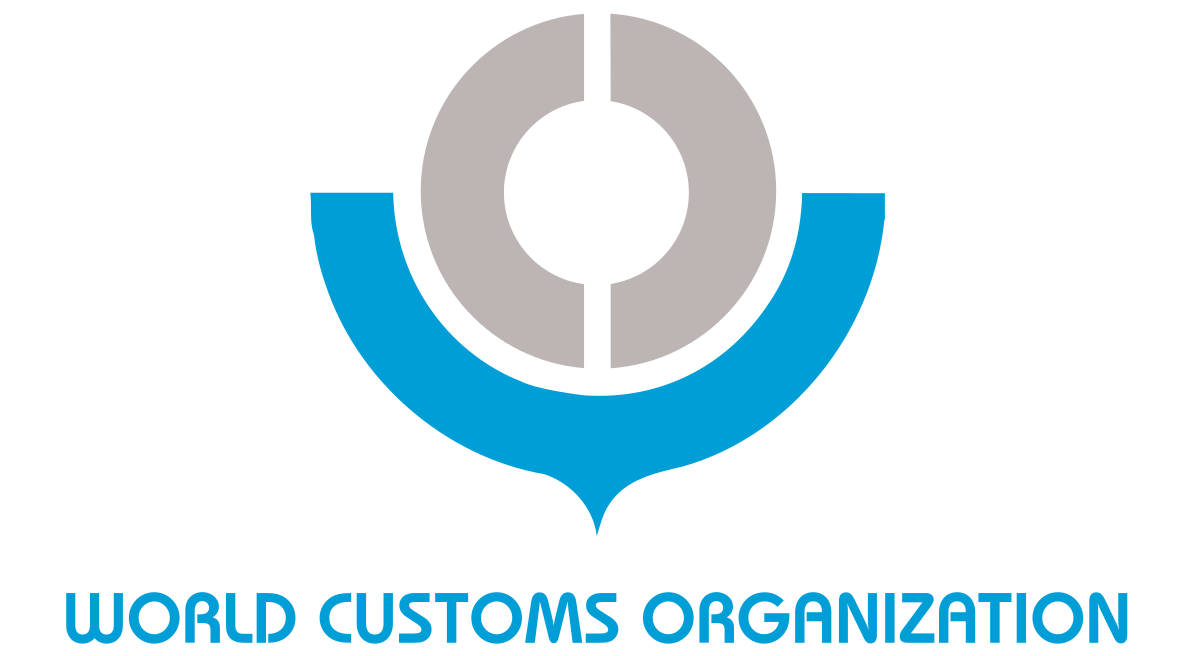Maritime
80 cadets get employment, sea-time placement

• MAN graduates 221
• Academy mulls MoU with NSML, Ghana’s Regional Maritime University
Over 80 graduating cadets who recently bagged Higher National Diploma (HND)and National Diploma (ND) from the Maritime Academy of Nigeria (MAN) Oron in Akwa Ibom State, got instant job offers and sea time training opportunities on Thursday November 13, 2025 at the Academy’s graduation ceremony .
President of the Shipowners Association of Nigeria(SOAN), Mr Sonny Eja, announced a total of 55 sea time training opportunities for the cadets drawn across various disciplines and levels. According to Eja, 50 of the training slots were offered by the SOAN while five others were engaged by Petromarine Nigeria Ltd,
At the ceremony, Greg Ogbeifun, CEO of Starzs Shipyard announced instant employments for four outstanding graduates with cash rewards of ₦1m each while Aminu Umar , CEO of Sea Transport Services Nigeria Limited also offered jobs and cash gifts of ₦250,000 to eight outstanding cadets
Umar who was represented by Musa Ado Ibn-Saidu, the company’s head of Corporate Services reiterated their commitment to promoting maritime manpower development in Nigeria.
Other organisations that supported the graduating cadets were Arion Energy Services Limited, Bricks Ltd and the Alumni Association of Maritime Academy Oron (AMANO).
Acting Rector, Dr Kevin Okonna who commended members of the nation’s maritime community for their usual support also restated his leadership thrust of confidence building through quality training and promotion of staff welfare
Okonna announced that for the first time in the history of the Academy, approval for the Staff Conditions of Service has successfully been completed and obtained from the Office of Head of Civil Service of the Federation (OHCSF), signifying a major milestone towards the Academy’s effort to attract and retain rare and skilled professionals .
Dr. Kevin Okonna, while delivering his welcome address at the 2025 Cadet’ Graduation Ceremony on 13th November, 2025 , disclosed that over the past year the institution has ensured operational steadiness in the face of several activities of detractors, strengthened governance and ensured that core training activities run consistently and professionally so that teaching and learning continues to flourish in line with the provisions of international standards..
According to him, a cornerstone of MAN’s strategy has been an unyielding focus on quality assurance and the provision of world-class training and certification. He said that the Academy has completed Stage One of the Standards Organisation of Nigeria (SON) quality audit and is preparing diligently for Stage Two as it moves toward certification of its standards in line with ISO 9001:2015 (Quality Management System) and ISO 21001:2025 (Educational Organizational Management System (EOMS)).
While highlighting the Command’s achievements in the past one year, he said the Academy has restored reasonably steady public power supply to the Academy and the Oron community after over eight years, all the cadets and students hostel solar power facilities have been rehabilitated and insstalled for 24 hours power supply and all the cadets have been registered with at least one international professional association, including the Nautical Institute, UK, IMarEST, UK and CILT Nigeria.
According to Okonna, the Nautical Institute has established the Nautical Institute Prize for the Best Graduating cadet in HND Nautical Science, including award certificate and money in British Pounds for Nautical Science publications of the winners choice.
In addition , he stated that the Academy has a Memorandum of Agreement with the Chartered Institute of Logistics and Transport (CILT) Nigeria, for student and associate member categories and further capacity building of all our cadets in the School of Maritime Transport Studies (SMTS).
The Academy is working very hard to provide the STCW Convention-required onboard training opportunities for seafaring cadets of the Academy.
The Rector stated that the Academy is working very hard to strengthen its partnership with the NLNG Shipping and Marine Services Limited (NSML) for the provision of onboard ship training for cadets of the Academy as well as many other services that will lead to greater international opportunities for the cadets in the Academy. He expressed his gratitude to the Minister of Marine and Blue Economy, Adegboyega Oyetola for his leadership.
He informed that the Academy is at advanced stage of establishing a robust partnership with the Regional Maritime University (RMU), Ghana for collaboration in a broad area of common interest for the development of MET & extend to Certification in collaboration with it’s Administrations.
The graduation of 221 cadets, according to him, is fit for purpose, and ready for their excellent contributions to the Marine and Blue Economy sector.
“I am equally delighted to inform you that, in line with the statutory mandate of the Academy, between Monday 10th and Tuesday, 11th November, 2025, we hosted the a team of Independent Evaluators from the International Maritime Organization (IMO) in the Academy for Independent Evaluation of Nigeria’s compliance with the Provisions of the International Convention on Standards of Training, Certification, and Watchkeeping for Seafarers, 1978 (as amended).
“Some seatime offers are going to be announced by frontline ship-owning partners ,including Starzs Investment Limited, Sea Transport Services Nigeria Ltd, and Arion Energy Services Ltd. The Academy has signed an MOU with Abuja MoU on Port State Control in West and Central Africa for provision of PSCOs course in the Academy. The Course has been approved by NIMASA and the instructors have been provided further training abroad and the Academy is ready to commence the training.
“The graduating class embodies the Academy’s standards of discipline, technical competence, and professionalism. All the graduands have successfully met the Academy’s academic and practical requirements and are now qualified to progress in their careers to seafarers certification and employment as well as maritime professionals in the global maritime industry. I recommend them to you, stake holders, for employment and mentorship in the interest of the future of our treasured marine and blue economy.”, he said.
Maritime
Trade facilitation: NSC tinkers cut in 21-day dwell time at ports

• Trains maritime police to curb clearance bottlenecks
By Grace Edet
The Nigerian Shippers’ Council has intensified efforts to tackle the country’s prolonged cargo clearance delays—currently averaging 21 days, and considered one of the longest globally, by strengthening collaboration with the Maritime Police Command through a new capacity-building programme.
The workshop with the theme: “Facilitating Port Efficiency: The Strategic Role of the Maritime Police”, held yesterday, in Lagos.
Declaring the training open on behalf of the Council’s Executive Secretary/CEO Pius Akutah, the Director, Regulatory Services Department, Margaret Ogbonnah, said the event marks “a high-point” in the port regulator’s long-standing partnership with the Nigeria Police, especially as the Federal Government pushes for more efficient port operations under the blue economy reform agenda.
In his remarks, the ES noted that the country continues to lag behind regional and global peers in cargo clearance speed.
“While it takes only 6 hours to clear a containerised cargo in Singapore and seven days in Lomé, it takes an average of 21 days or more in Nigerian ports. This has contributed to Nigeria’s low global perception index on Ease of Doing Business,” he said.
He explained that despite several government interventions, reductions in dwell time have been hindered by a combination of operational gaps and human-factor-related delays.
Akutah said the Council has received reports from port stakeholders about various forms of interference affecting cargo movement, including detention orders placed on cargo already cleared through due process, operational disruptions linked to multi-layered enforcement activities, and accidents involving personnel of shipping companies and terminals
He emphasised that such actions—whether arising from misunderstandings or procedural oversights, tend to extend dwell time and increase demurrage and storage charges for businesses.
“Investigations often showed that some actions were carried out without the knowledge of the appropriate authorities within the Maritime Police Command,” he said.
This, he added, prompted both institutions to engage the Inspector General of Police in 2018, resulting in a directive that only letters signed by the AIG or duly designated officers should be acted upon, thereby streamlining enforcement communication at the ports.
“Together, we have achieved quite a lot, but we cannot rest on past achievements. Our focus must be firmly on attaining international best practices,” Akutah said.
Represented by the Assistant Commissioner of Police Administration, Ports Authority Police, Western Command, ACP Olufikayo Fawole, the Assistant Inspector-General of Police (Maritime Command), AIG Chinedu Oko, commended the NSC for sustaining a collaborative platform that supports law enforcement efficiency within the maritime environment.
“Modern port security goes far beyond traditional policing. The efficiency of our ports depends significantly on how effectively law enforcement interfaces with operators, regulators, freight forwarders, shipping lines, and the wider supply chain,” he said.
He stressed that the Maritime Police play a critical role in securing maritime assets, deterring cargo-related crimes, preventing pilferage, and ensuring that legitimate trade flows without avoidable friction.
“Your professionalism and integrity directly influence the confidence of shippers, investors, and the international maritime community,” he told participating officers.
Delivering the technical paper on behalf of the AIG, DCP Chukwuemeka Obasi said the efficiency of the country’s ports is inseparable from the security framework supporting them.
He outlined three key reform pillars guiding police operations toward improved port efficiency. The first focused on operational streamlining by harmonising enforcement roles with the Nigerian Ports Authority (NPA), Nigeria Customs Service, NIMASA and other agencies to eliminate duplication.
The second emphasised technology integration, particularly the deployment of digital surveillance systems, cargo-monitoring platforms and intelligence tools under initiatives such as the Deep Blue Project. The third pillar centred on strengthening stakeholder collaboration by enhancing joint task forces and port security committees to ensure more coordinated maritime security responses.
However, he noted persistent challenges including overlapping mandates among agencies, limited patrol and surveillance logistics, legal bottlenecks in prosecuting maritime offences, and ethical concerns that can undermine efficiency.
To address these, he recommended joint security frameworks, expanded specialised training, smart surveillance, legal reforms, and stronger accountability systems, insisting that policing must support, not obstruct, trade facilitation.
In closing, the NSC boss reaffirmed that port efficiency cannot be achieved by one institution alone.
“Our mandate as Port Economic Regulator is to ensure efficiency, but it requires synergy with the Maritime Police and all stakeholders. This training is part of our commitment to educating officers and promoting global standards in port operations,” he said.
He commended officers of the Council and the Maritime Police Command for their role in organising the programme and urged participants to apply lessons learned to their daily operational decisions.
With Nigeria still grappling with a 21-day average cargo dwell time, the NSC says eliminating procedural bottlenecks, improving security coordination, and strengthening professionalism within port corridors remain central to restoring competitiveness. The Council and the Maritime Police believe that enhanced capacity, technology-driven enforcement and regulatory collaboration will be key to improving trade facilitation and supporting the country’s blue economy ambitions.
Maritime
Africa poised for maritime trade lift with Customs reforms, says WCO Chief

By Grace Edet
The World Customs Organisation (WCO) has said Africa stands on the brink of major maritime trade expansion if customs administrations accelerate modernisation and deepen regional cooperation.
WCO Secretary General Ian Saunders made the statement at the Customs–Partnership for African Cooperation in Trade (C-PACT) conference on Tuesday, noting that improved customs systems will drive efficiency across ports, transit corridors, and regional supply chains.
Saunders said modernising customs operations was central to boosting Africa’s competitiveness under the African Continental Free Trade Area (AfCFTA), positioning the continent’s seaports and logistics hubs for increased global traffic.
“The realities of international trade and the ambitions of AfCFTA make modernising customs systems, processes, and governance essential to achieving smoother, faster, and more predictable cross-border transactions across Africa,” he said.
Speaking on the theme “Breaking Barriers, Building Bridges,” Saunders acknowledged Africa’s logistical constraints but emphasised the resilience and growing sophistication of customs administrations across the continent.
He noted that despite infrastructure gaps and complex transit procedures, customs officials continue to “operate effectively, demonstrating resilience, adaptability, and consistent efficiency” in managing cross-border trade in diverse environments.
Saunders said the strongest gains for Africa’s maritime and land-based trade will come from coordinated reforms backed by technology, stronger partnerships, and digitised border processes.
“It involves building IT systems capable of capturing all border transaction data through integrated single-window systems, improving efficiency, transparency, and predictability for cross-border trade operations across multiple jurisdictions,” he explained.
He added that modern trade facilitation depends on advanced measures such as pre-submission of information, risk assessment, post-clearance audits, and streamlined origin-certification procedures.
“The value of these processes lies in predictability, timely decisions, and focusing scrutiny where warranted, ensuring efficient trade while maintaining compliance and border security,” he said.
Saunders advocated stronger collaboration among customs administrations, policymakers, political leaders, and border agencies to fully unlock trade opportunities.
“Maximising trade opportunities requires collaboration among customs authorities, trade policymakers, political leaders, and other government agencies responsible for border clearance and facilitation,” he said.
He emphasised that traders, logistics providers, and maritime service actors remain central to the continent’s trade growth. Their input, he said, “supplied the goods, services, and options critical to meeting trade expectations and promoting regional economic growth.”
According to him, stronger public–private partnerships create a “healthier trade ecosystem,” enabling more coherent, efficient, and secure border management.
Saunders highlighted efficient transit as a cornerstone of regional integration, especially for landlocked states relying on seaports for imports and exports.
“In Africa, efficient transit procedures, including the use of carnés, reduce delays, ensure predictable treatment for traders, and complement other procedural measures established by the WCO for customs guidance,” he added.
Describing the C-PACT conference as a turning point, Saunders said it offers Africa a platform to build stronger systems, deepen economic integration, and strengthen its position in global trade.
“I am confident that the discussions, strengthened partnerships, and insights gained here will generate momentum, bringing Africa closer to its trade aspirations and reinforcing its position in the global economy,” he said.
With port reforms, digital customs systems, and regional coordination gaining momentum, the WCO believes Africa is well-placed to unlock new maritime trade corridors, attract investment, and strengthen its export competitiveness under AfCFTA.
Maritime
NIMASA names Iyelolu as Registrar of Ships

By Grace Edet
The Minister of Marine and Blue Economy, Adegboyega Oyetola, has approved the appointment of Barr. Adenike Adeyele Iyelolu as the Registrar of Ships for the Federal Republic of Nigeria.
Her appointment, which is for a four-year tenure, follows the recommendation of the Director General of the Nigerian Maritime Administration and Safety Agency (NIMASA), Dr. Dayo Mobereola.
In line with the NIMASA Act 2007, the Registrar of Ships will report directly to the Director General for the effective administration of the Nigerian Ship Registry.
The Act provides that “the Registrar of Ships shall, with the approval of the Minister, be appointed by the Director General from among the staff of the Agency.”
Iyelolu who is currently a Deputy Director in the employ of NIMASA is an accomplished legal and maritime governance professional with over twenty-five (25) years of post-call experience spanning maritime and legal practice, arbitration, procurement, contract administration, corporate governance, and institutional leadership amongst others.
Barr. Iyelolu’s appointment comes following the retirement of the former Registrar of Ships, Barr. Tajudeen Giwa, after years of commendable service.
-

 Art & Life8 years ago
Art & Life8 years agoThese ’90s fashion trends are making a comeback in 2017
-

 Entertainment8 years ago
Entertainment8 years agoThe final 6 ‘Game of Thrones’ episodes might feel like a full season
-

 Art & Life8 years ago
Art & Life8 years agoAccording to Dior Couture, this taboo fashion accessory is back
-

 Entertainment8 years ago
Entertainment8 years agoThe old and New Edition cast comes together to perform
-

 Sports8 years ago
Sports8 years agoPhillies’ Aaron Altherr makes mind-boggling barehanded play
-

 Entertainment8 years ago
Entertainment8 years agoMod turns ‘Counter-Strike’ into a ‘Tekken’ clone with fighting chickens
-

 Entertainment8 years ago
Entertainment8 years agoDisney’s live-action Aladdin finally finds its stars
-

 Business8 years ago
Business8 years agoThe 9 worst mistakes you can ever make at work





